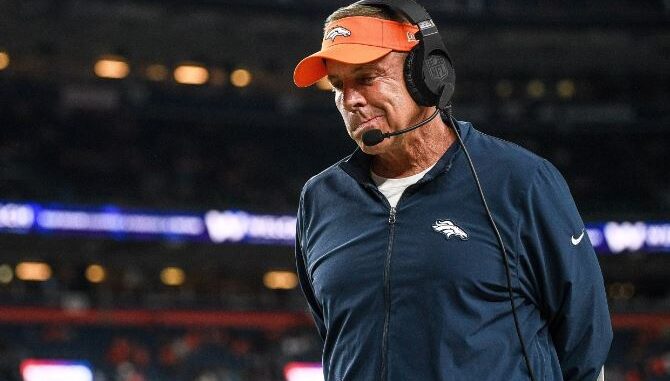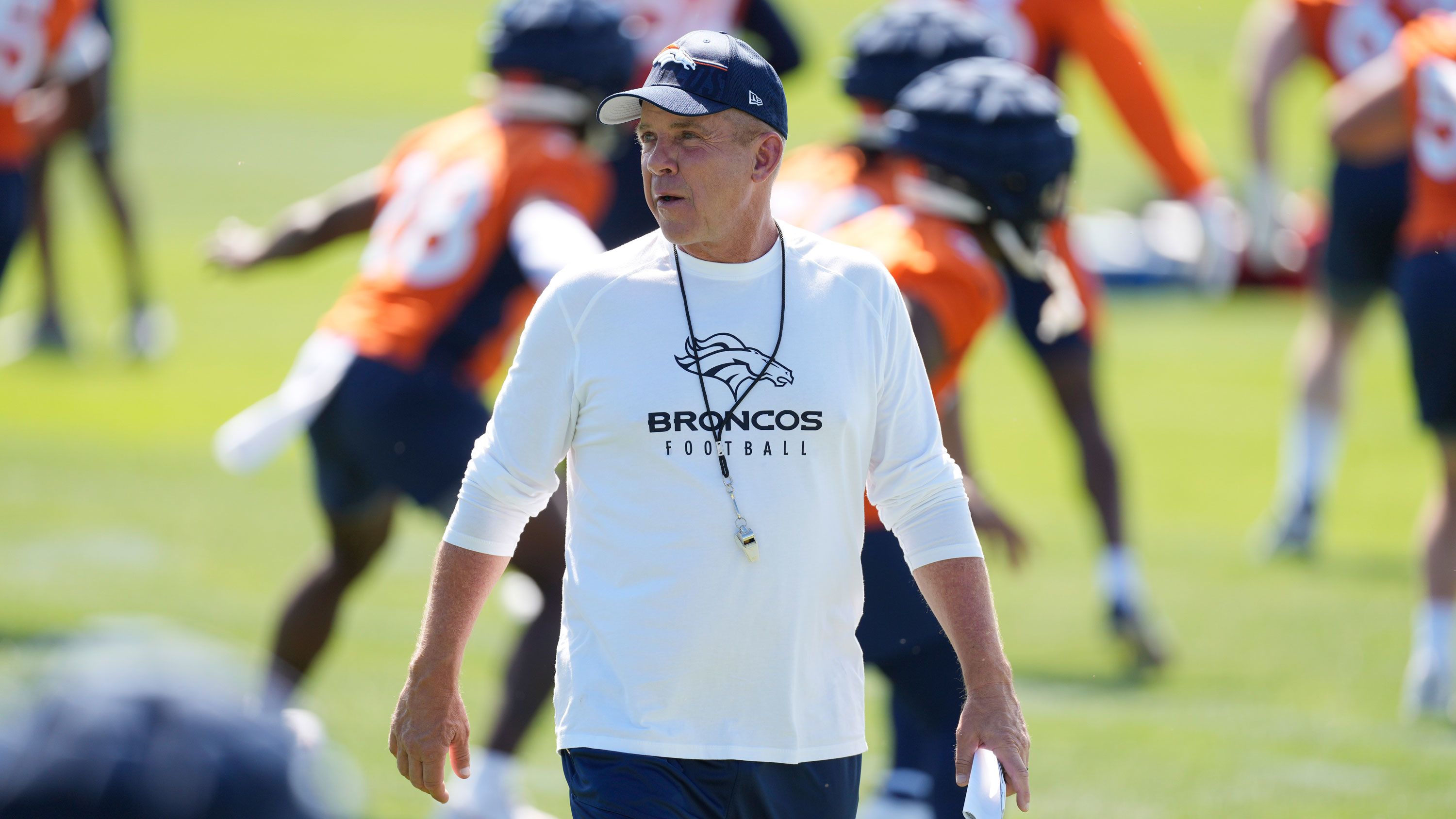
Sean Payton thinks that the culpability does not end with the rash of players suspended in recent weeks for breaking the NFL’s gambling policies.
With second-year defensive tackle Eyioma Uwazurike suspended indefinitely on Monday for betting on NFL games last season, the new Denver Broncos coach has issued a harsh reprimand to the league office for enforcing a regulation that is increasingly causing the NFL to look bad.
“When you have a bunch of players getting D’s, you have to start looking at the message,” Payton told USA TODAY Sports in an exclusive interview on Tuesday, as Broncos veterans arrived for training camp. “And we’ve had a lot of D’s in our league this year with this policy.”
When reminded that Uwazurike, 25, is the 10th NFL player suspended for gambling since April, Payton responded, “Shame on us.”
“And we’re going to send them home for a year, so they can’t be around. Shame on us for believing that you would simply disappear.”
Uwazurike will be ineligible to return for at least a year, with his 2023 season cancelled. While Payton does not excuse the player for breaching the code, he is critical of the league’s attempts to communicate the policy to teams and players.
Payton, who returned to the Broncos this season after a one-year absence from coaching, was an outspoken critic long before one of his players was punished. He stated that he effectively tore up policy materials supplied to the team by the league in the spring because they were too complicated.
“It was awful,” Payton added.

He directed Mark Thewes, the team’s vice president of football operations and compliance, to prepare a condensed version of the policy, which he delivered to the players and staff.
Did Payton tell the players?
“You can’t bet on NFL football, ever, ever, ever,” he told me. “I don’t care what it is. Another point to consider is that it is identical to the gun policy. You can’t bet on nothing while you’re at your facility, hotel, or plane. So, where you can’t carry a gun, you can’t bet.
It’s surprising, if not ludicrous, that Payton would feel the need to draw a parallel with the NFL’s firearms policy.
“You can’t bring a gun to the parking lot…the team hotel…to training camp…to the stadium,” said the coach.
However, the fact that NFL players are unaware that betting on league games is prohibited, even if they are injured or inactive, appears to highlight the need for education.
“Do you want to know why everyone is getting busted? “They use this at the facility,” Payton remarked, snatching his phone. “And this shows where you were at.
“It’s really clear for the players: you cannot bet on football. “Period,” he repeated. “You can gamble on various sports, including dogs, horses, and craps. You can do all of that, but not while you’re in the facility.

No, it doesn’t help that the league’s climate has changed to the point that most NFL clubs have sponsorship relationships with casinos or other gambling entities, and that the league has embraced a sector that was once deemed taboo. Payton isn’t afraid to point out that the NFL’s gambling policy is blatantly hypocritical.
“I know this: There’s a handful of owners that are owning these ‘problems,'” Payton added. “A player cannot own a part of DraftKings or FanDuel. It is shameful. Embarrassing.”
As of Tuesday morning, Payton stated that he had not contacted Uwazurike since the ban was announced, but wanted to speak with him before the end of the day. Payton appeared discouraged by what he learned about the protocol, which prohibited interaction and support from the team.
“Part of that (support) is figuring out, ‘Hey, what is the protocol? “What is allowed?” Payton stated. “Do we want to see these guys return?”

Payton recalled the terms of his one-year ban by NFL Commissioner Roger Goodell for the 2012 season, which stemmed from the Bountygate controversy involving the New Orleans Saints. During his suspension, Payton was not permitted to contact any coaches, staff, players, or league office workers. If he accidently encountered someone (like he did with a Dallas Cowboys linebacker while in the Dallas region during his suspension), he had to notify then-NFL Executive Vice President of Football Operations Ray Anderson.
“When they want to kill somebody…when I got suspended, it was, ‘You can’t have no contact with anybody in the NFL,'” Payton reported. “The thought that I’m going to call someone and say, ‘You need to be running these plays’ is ridiculous.
“The question is, ‘What’s the objective of the punishment?’ I understand Roger’s intent (for me). Do we want these young guys to still have the opportunity to learn from their mistakes?
Surely, that would be the ideal solution for the NFL.
Leave a Reply